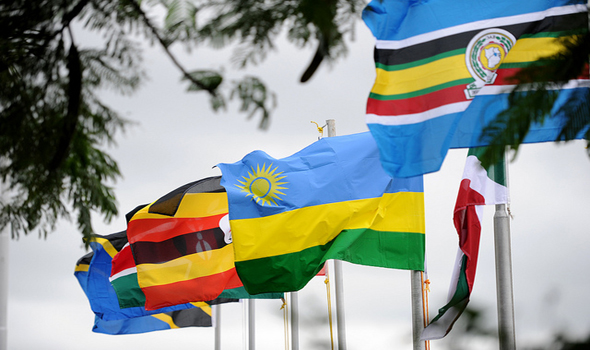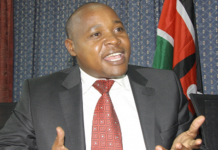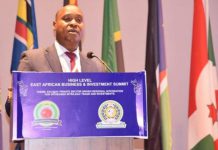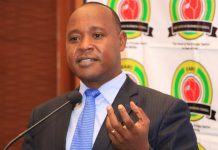THE East African Business Council (EABC) and TradeMark East Africa (TMEA) have launched a regional programme on Public-Private Sector Dialogue (PPD) for trade and investment from 2019 to 2023.
Speaking at the official kick-off ceremony at EABC Secretariat, the EABC CEO, Peter Mathuki said the project aims to enhance advocacy and dialogue on transport and logistics, trade facilitation, customs and tax, standards and NTBs at regional and country level.
In addition, the programme extends beyond the EAC and incorporates the COMESA, COMESA-EAC-SADC Tripartite Free Trade Area (TFTA) and Africa Continental Free Trade Area (AfCFTA).
“The EABC is keen to enhance dialogue and partnership between the private and public sector, hence EABC will spearhead the programme in close collaboration with the all national and regional sectoral private sector associations in the EAC,” he is quoted as saying in a statement released yesterday.
For businesses in the region to grow and expand within and beyond the EA, there is a need for technical and financial support to EABC in a bid to advocate and input substantive issues affecting the business community in regard to policy formulation and implementation in the region.
“Public-Private Dialogue can facilitate the trade & investment climate reforms by promoting better diagnosis of investment climate problems, transparency and inclusive design of policy reforms making policies easier to implement.
TMEA launched this new partnership with EABC to galvanize and facilitate trade and investments in the EAC,” said Mr Allan Ngugi, Ag. Director Private Sector Advocacy TMEA.
This partnership comes at an opportune time when the EAC integration process is marking 20 years in November 2019 since the signing of the Treaty, it is important that the private sector and government dialogue ensure that protocols and policies work on the ground for EAC businesses.
In addition, Article 7 of the Treaty for the Establishment of the EAC states on people-centered and market-driven cooperation as a principle to govern practical achievements of the objectives of the EAC integration process.
Further Article 128 emphasizes on strengthening of the private sector as a key partner in the EAC integration.
“Barriers to trading across borders such as multiple product standard inspections, bureaucratic trade procedures delays business transactions and increase the cost of doing business.
EABC will evaluate and monitor EAC policies to ensure they work for businesses at the ground level and create momentum for accelerating the policy reforms related to business and investment climate in the EAC ” said Mr Mathuki.
The programme seeks to contribute to the reduction of transport (road, rail, and air) cost and time along transport corridors by 10 per cent and increase the efficiency of logistic services.
Furthermore, it will increase the export capacity of East African businesses and enhance customs and other traderelated agencies efficiency by reducing time to process trade documentation.
“It will enhance dialogue on customs matters such as tariffs, taxes, levies, Common External Tariffs and import/ export tax incentives.
It will also look at Harmonisation of East African Standards, counterfeit and sub-standard issues as well as Non-Tariff Barriers,” said Mr Mathuki, EABC CEO.
“The operationalisation of the Single Customs Territory has contributed to the reduction of delays in cargo clearance in the Northern Corridor, the turnaround time of goods transiting from Mombasa to Kampala has been reduced from 18 days to 4 and goods from Mombasa to Kigali, from 21 days to 6.2,” he said.
According to the World Trade Organisation to the Central Corridor turnaround time between the port of Dar es Salaam and Kigali (or Bujumbura) has been reduced from over 20 days to 6.
According to the WorldBank Ease of Doing Business report (2018), EAC is ranked at 149 out of 190 in the ease of trading across borders.
In the region, the time it takes to export is at an average of 76.hrs which is too high compared to 12.5 hours in OECD High- Income Economies.
The cost to export outside the region is at an average of USD427.8 compared to 139.1 in OECD High-Income economies.
The export documentary compliance in the region takes 80.2hours and cost USD 170.2 while in OECD High-Income economies is at 2.4hrs and USD35.2 respectively.







